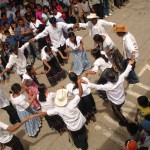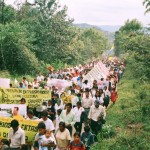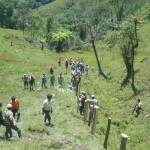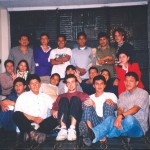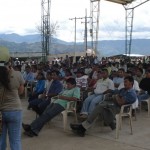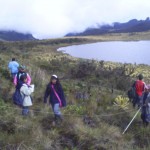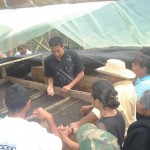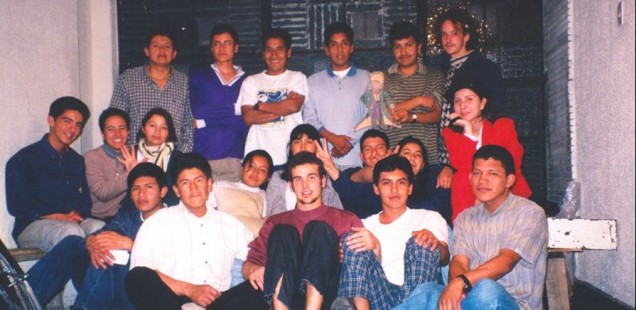
Establishing and strengthening environmental groups in Tierradentro (Colombia)
Tierradentro is a remote valley of the central Andean chain, in Colombia. Inhabited by both indigenous and mestizo peasants, the landscape bears the sign of the shift from the original Nasa indigenous culture to a hybrid culture devoted to mountain agriculture, combining subsistence economies with market agricultural goods.
The steep slopes are covered with small scale agricultural plots (maize, beans, coffee and sugarcane), large pastures areas (associated with major farms) and some scattered secondary forests and moors. The scarce remaining vegetation generally fails to stop the formation of mudslides in the watersheds… most of which have been deforested only relatively recently. This is a serious source of environmental risks for the people living in the valleys. Throughout the territory one finds indigenous reserves, private lands and uncultivated areas. Some traditional indigenous customs remain, such as the Nasa language, some typical food and some forms of communal work, but those are clearly mixed with the habits of the generalized peasant lifestyle. In this context, the local organization “Protierradentro” was created in the 1990s by the initiative of some local youth that had moved out of the area to acquire professional capacities but wanted to return home and was firmly engaged to improve the livelihoods and welfare of its own people.
Protierradentro wants to create widespread social awareness of the need to embrace a common strategy to respond to the local socio-environmental crisis. From the beginning, they agreed that they will take an intercultural approach. In association with six local educational institutions, some young people of mixed indigenous and peasant background will set up a variety of educational events and engage with others to improve the management of the local territory and natural resources. Although the initiative is expected to last only one year and is mostly directed to create and strengthen capacities, Protierradentro estimates that it will consolidate the knowledge and action of several of its members. The initiative will create study groups and develop local productive projects that will be carried out in each of the six locations (the ones of the educational institutions) taking advantage of a variety of local sources of support. The initiative will pull together leaders, teachers and directors of educational institutions and looks forward to showcasing sustainable initiatives that will grow with time.

